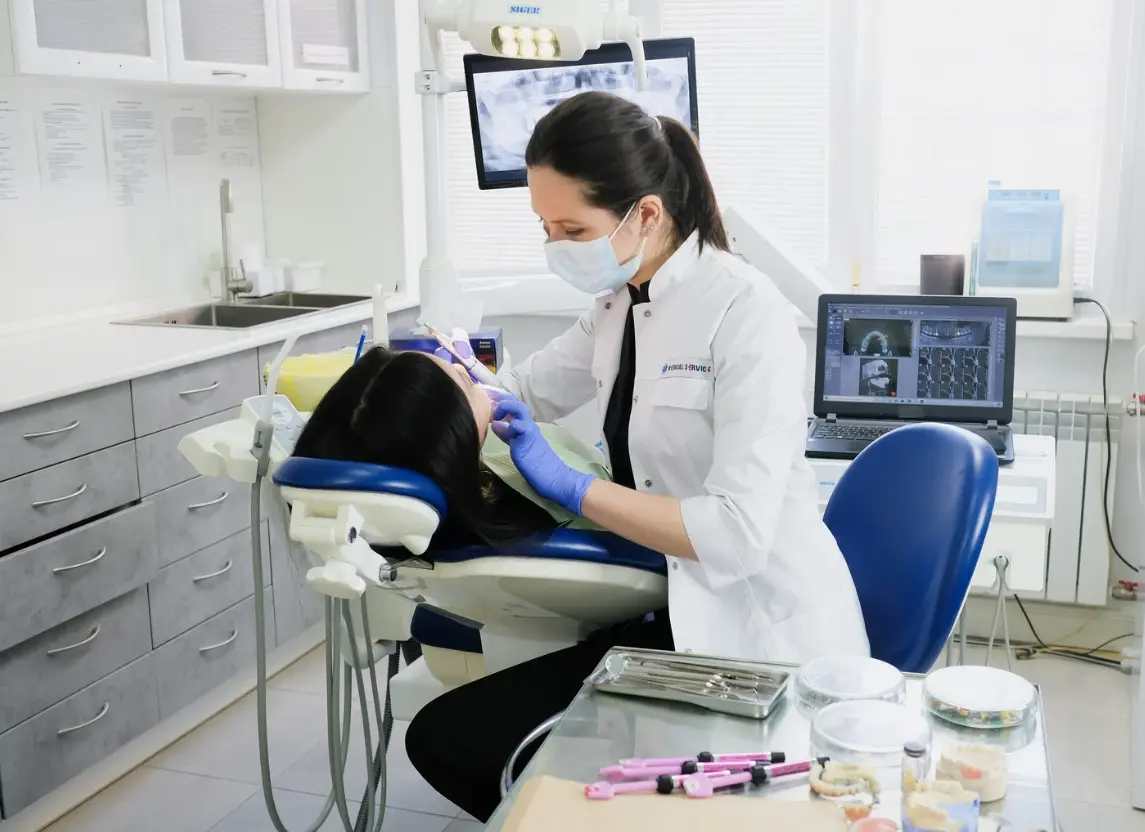
Temporomandibular joint disorder
TMJ Dysfunction and Treatment

Understanding TMJ and Its Treatment Options
Temporomandibular joint disorder (TMJ) refers to a group of conditions affecting the jaw joint and surrounding muscles, often causing pain and discomfort. The temporomandibular joint connects the jawbone to the skull, allowing for essential functions like chewing and speaking.
Symptoms of TMJ dysfunction can include jaw pain, headaches, difficulty chewing, and a clicking or popping sound when opening or closing the mouth.

Causes of TMJ Dysfunction
Various factors can contribute to TMJ disorders, including jaw injuries, arthritis, teeth grinding (bruxism), and stress. While the exact cause can vary, it’s essential to seek professional help to manage the symptoms effectively.
Some patients are unaware of factors that contribute to TMJ, such as grinding at night during sleep. Whilst some causes of TMJ may sound difficult to address, the good news is that your dentist can provide a range of treatment options to manage TMJ and provide relief.

TMJ Treatment at Dentist
Dentists offer several treatment options for TMJ. Initial treatments may include lifestyle changes, such as stress management techniques, avoiding hard foods, and practicing jaw exercises to improve flexibility. Ice or heat application can also provide relief.
For persistent cases, dentists may recommend the use of a custom-made splint or night guard to help align the jaw and prevent teeth grinding. Physical therapy can also be beneficial, focusing on strengthening jaw muscles and improving mobility. Another common treatment option is muscle injections, which are carefully administered by your dentist, to relax the jaw as well as to address clenching of the jaw.
In some instances, dental procedures such as orthodontics may be necessary to correct bite issues contributing to TMJ symptoms.
Book an appointment at one of 6 MC Dental clinics in Melbourne.
Over 35 bilingual dentists available 7 days a week.
Call us on 03 8608 8968
or book online by clicking on the button below.
TMJ Pain: Why Prompt Treatment is Important
Understanding TMJ is the first step toward effective management, and a visit to the dentist can provide the necessary guidance and treatment options tailored to individual needs. Early intervention into TMJ issues can help prevent more serious problems or damage from occurring down the track.

Why Choose MC Dental for Your TMJ Treatment?
Experienced Team: Our dentists have years of experience handling all types of dental emergencies.
Modern Technology: We use the latest dental technology to ensure accurate diagnoses and effective treatments.
Comfortable Environment: We understand dental emergencies can be stressful, so we strive to create a calming, comfortable atmosphere.
Comprehensive Care: From immediate pain relief to long-term solutions, we provide complete care for your oral health.
Contact Us for TMJ Care
Don’t let TMJ issues impact your quality of life. At MC Dental, we’re here to provide the prompt, professional care you need.
Call us immediately at 03 8608 8968. Our team is ready to help alleviate your discomfort and provide solutions to manage TMJ moving forward.
Book an appointment at one of 6 MC Dental clinics in Melbourne.
Melbourne Central | Westfield Doncaster | Docklands | Glen Waverley | Brighton | Highpoint
Call us on 03 8608 8968
or book online by clicking on the button below.
FAQ – TMJ dysfunction and treatment
TMJ stands for temporomandibular joint, which connects your jaw to your skull. It allows for movements such as chewing and speaking.
Common symptoms include jaw pain, difficulty chewing, clicking or popping sounds when moving the jaw, facial pain, headaches, and neck or shoulder pain.
Causes can include jaw injury, teeth grinding (bruxism), arthritis, jaw alignment issues, and stress, which can lead to muscle tension.
Diagnosis typically involves a physical examination, a review of your medical history, and sometimes imaging tests like X-rays or MRIs to assess the joint and surrounding structures.
Treatment options may include physical therapy, medications (like pain relievers or muscle relaxants), dental splints, lifestyle changes, stress management techniques, and in severe cases, surgery.
Yes, some TMJ issues can resolve on their own, especially if related to temporary stress or muscle strain. However, persistent symptoms should be evaluated by a healthcare professional.
Yes, TMJ disorders can contribute to sleep issues, such as sleep apnea or insomnia, especially if teeth grinding occurs at night.
You should see a dentist if your symptoms are persistent, or affecting your daily life.



